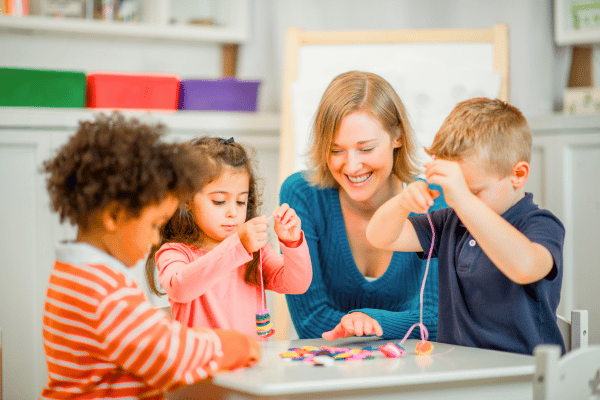There are no items in your cart
Add More
Add More
| Item Details | Price | ||
|---|---|---|---|

Hello, fellow trainers! Guiding children aged 3 to 10 on their journey of learning life and social skills is one of the most rewarding roles we can have. But how do we ensure our lessons stick long after a session ends? The secret lies not just in what we teach, but how we ignite their curiosity and create memorable experiences. 😇
Here are essential skills to boost learning retention and engagement in our young learners:-
1. Master the Art of Playful Learning
For young children, play is serious work. It's their primary language for understanding the world. Instead of simply telling them about a concept, embed it in a game. Abstract rules are forgettable, but a fun experience is not. 🤗
Practical Tip: To teach cooperation, ditch the lecture. Instead, try a "Human Knot" game where children must work together, communicate, and listen to untangle themselves.
2. Weave Magic with Storytelling
Stories provide a powerful framework for complex social concepts.
Practical Tip: When teaching about handling disappointment, tell a story about a character whose sandcastle gets washed away by a wave.
3. Engage All the Senses
Young learners absorb information through their entire bodies. A multi-sensory approach anchors learning in their memory.
Practical Tip: When exploring emotions, move beyond flashcards. Ask children to show you what an "angry stomp" looks like or a "happy wiggle." Use different textures of cloth to represent feelings—soft for calm, scratchy for frustrated. This physical connection helps them understand and regulate their emotions better. 🤔
By integrating play, storytelling, and sensory engagement into our training, we transform from instructors into facilitators of discovery. We create a dynamic environment where children don't just learn skills—they live them. This is how we ensure our lessons resonate, creating a foundation of social and emotional intelligence that lasts a lifetime. 🎯
SkillUVA is committed to your professional development and wants you to excel in your journey as a training professional; therefore, we offer you this amazing Case Study Pack on Communication Skills Training. Explore this marvelous experiential learning tool for your next workshop. 🤩

Dr. Ashish Parnani
Founder & Director - SkillUVA